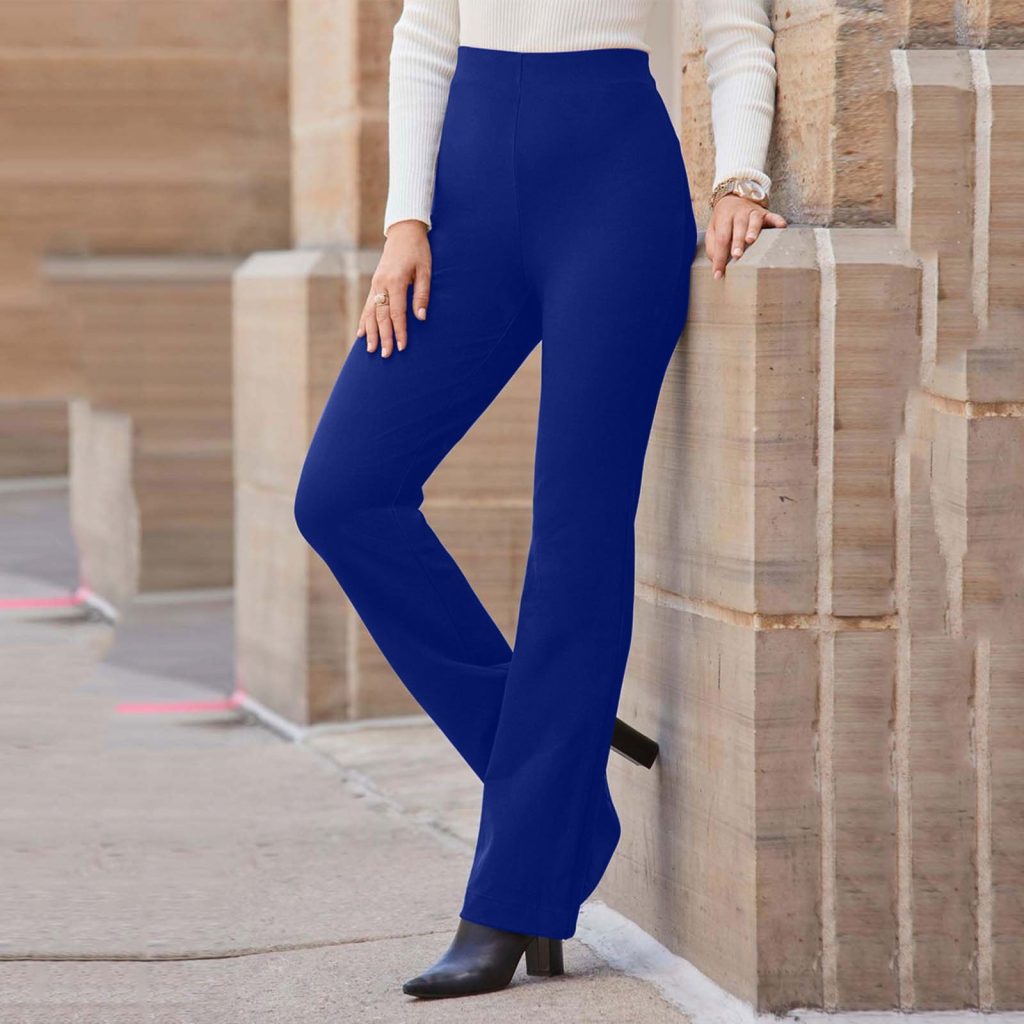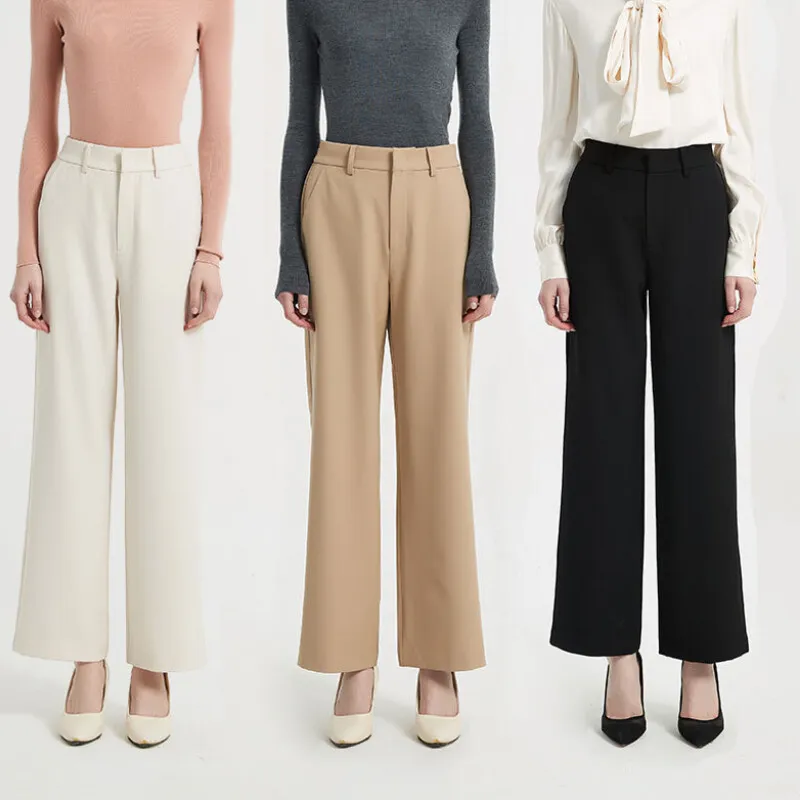How to iron dress pants? Ironing dress pants is an essential skill for maintaining a crisp, professional appearance. Whether you’re preparing for a job interview, a business meeting, or a special occasion, knowing how to properly iron your dress pants can make all the difference in presenting yourself at your best. This detailed guide will walk you through the process step by step, ensuring that your pants look freshly pressed and impeccable every time.
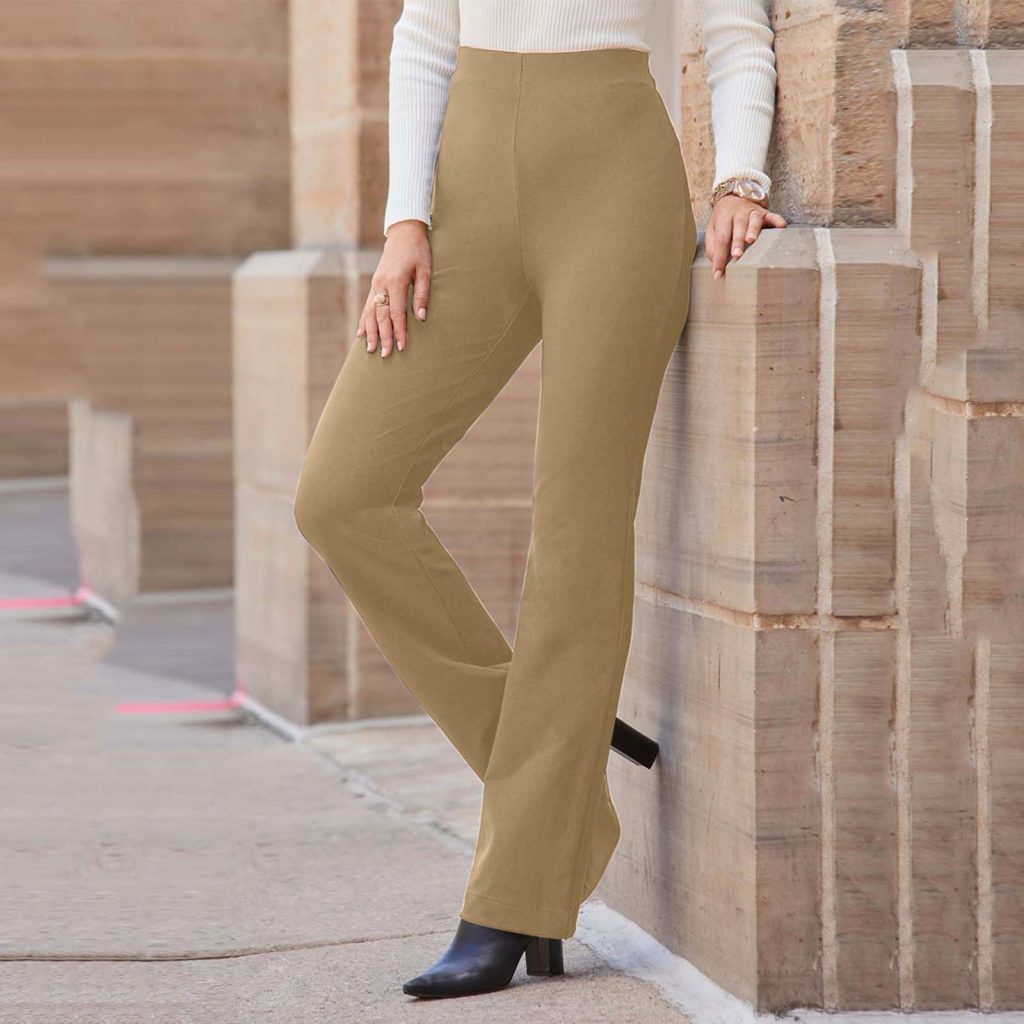
Preparing for the Task
Before diving into the ironing process, it’s crucial to gather the right tools and set up your workspace appropriately. Here’s what you’ll need:
- Iron: A good quality steam iron with adjustable temperature settings is ideal.
- Ironing Board: A sturdy ironing board with a suitable cover that allows the iron to glide smoothly.
- Water: For filling the iron if it has a steam function.
- Pressing Cloth: Optional but useful for delicate fabrics to prevent direct heat damage.
- Hanger: To hang the dress pants immediately after ironing to maintain their shape.
Assessing the Fabric
Different fabrics require different heat settings to avoid damage. Always check the care label on your pants for specific instructions. Common fabric types and their ironing needs include:
- Cotton: High heat setting, use steam.
- Linen: High heat, steam can help relax wrinkles.
- Wool: Medium heat, use a pressing cloth and steam if necessary.
- Synthetics (polyester, rayon): Low to medium heat, avoid direct high heat to prevent melting.
- Blends: Adjust the heat setting according to the most delicate fabric in the blend.
The Ironing Process
- Heat Up: Turn on your iron and set it to the appropriate temperature while you prepare the pants.
- Preparation: Lay out your pants flat on the ironing board, starting with the waistband. If they’re heavily wrinkled, consider spraying them lightly with water before ironing.
- Waistband: Begin by ironing the waistband, moving the iron in a circular motion around buttons and belt loops. Take care not to apply too much pressure directly on these areas to avoid misshaping them.
- Pockets and Seams: Iron along the seams and pockets, using the tip of the iron to get into tight corners. This helps straighten out any creases formed along these lines.
- Legs: Start with one leg, laying it flat with the inner seam facing up. Work from the bottom hem upwards, gently pulling the fabric taut as you go to ensure a smooth finish. Repeat this process on the outer side, then switch to the other leg.
- Creases: If your pants have a natural crease down the center of each leg, reinforce it by placing the iron along the crease line and applying gentle pressure. For pants without predefined creases, decide where you want the crease to be and press firmly along that line.
- Finishing Touches: After both legs are done, give the cuffs a final pass to ensure they look neat. Hang the pants immediately using a hanger to maintain their shape and prevent new wrinkles from forming.
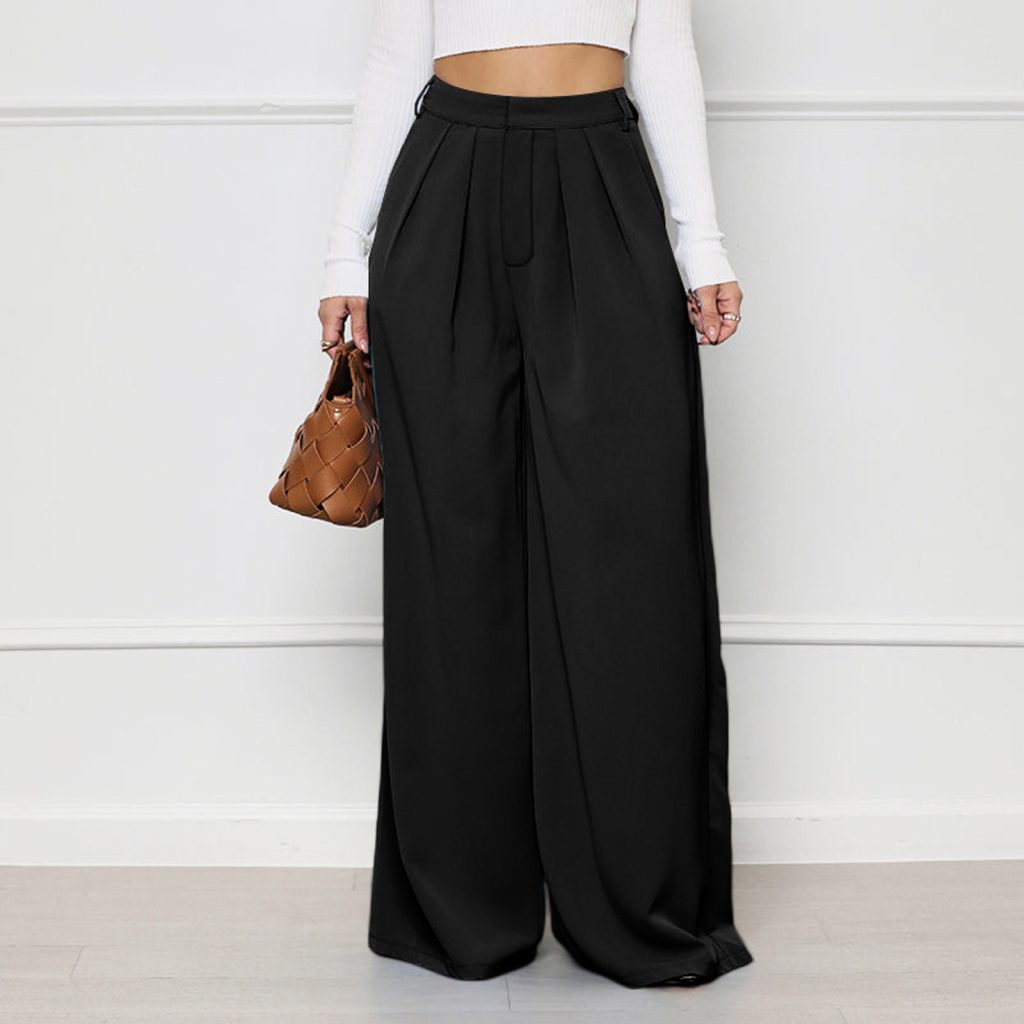
Tips and Tricks
- Test First: Always test the iron’s heat on an inconspicuous area of the pants to avoid damage.
- Steam vs. Dry Ironing: Steam can help relax stubborn wrinkles, especially in thicker fabrics like cotton and linen. However, for delicate materials, dry ironing with a pressing cloth might be safer.
- Direction Matters: Iron with the grain of the fabric to avoid damaging the fibers and creating shine marks.
- Continuous Movement: Avoid leaving the iron stationary on the fabric for too long, as this can cause scorching or burning.
How to match dress pants with clothes
Dressing sharply with pants have pockets involves more than just selecting the perfect pair; it’s about mastering the art of coordination to create a polished and stylish ensemble. Dress pants, versatile in nature, can be paired with various tops, jackets, shoes, and accessories to achieve looks ranging from classic professional to casually elegant.
Understanding Your Dress Pants
Before delving into outfit combinations, it’s crucial to understand the characteristics of your dress pants. Factors such as color, fabric, cut, and pattern significantly influence the overall aesthetic and formality of your look. Classic colors like black, navy, and gray are versatile and work well in formal settings, whereas bolder hues or patterns can add personality to more casual outfits.
Essential Pairings for Professional Settings
- Classic White Shirt: A timeless combination, pairing dress pants with a crisp white shirt creates an instantly professional look. Add a tailored blazer in a coordinating or complementary color for added sophistication.
- Button-Down Oxford: For a slightly less formal yet still professional approach, opt for an oxford shirt. Roll up the sleeves for a touch of relaxed elegance.
- Fine Gauge Sweater: Layer a fine-knit sweater over a collared shirt for a refined winter look. Choose neutral tones or complement the pant color for a cohesive ensemble.
Casual Elegance
- T-Shirt & Blazer: Combine a clean, fitted T-shirt with dress pants for a smart-casual balance. Top off with a well-fitted blazer to elevate the look.
- Knit Polo: A polo shirt adds a touch of sporty sophistication when teamed with dress pants. Opt for a slim-fit polo to maintain a streamlined silhouette.
- Henley Shirt: A henley, with its subtle placket detail, offers a more relaxed alternative to a traditional button-down. Pair with slim-fit pants and loafers for a casual weekend look.
Layering for Versatility
- Cardigan or Sweater Vest: Layering a cardigan or sweater vest over a shirt can add depth and texture to your outfit. Choose pieces that complement your pants’ color palette for a harmonious look.
- Leather Jacket: For an edgy twist, top your dress pants with a sleek leather jacket. This pairing works particularly well with dark-colored pants and a simple tee.
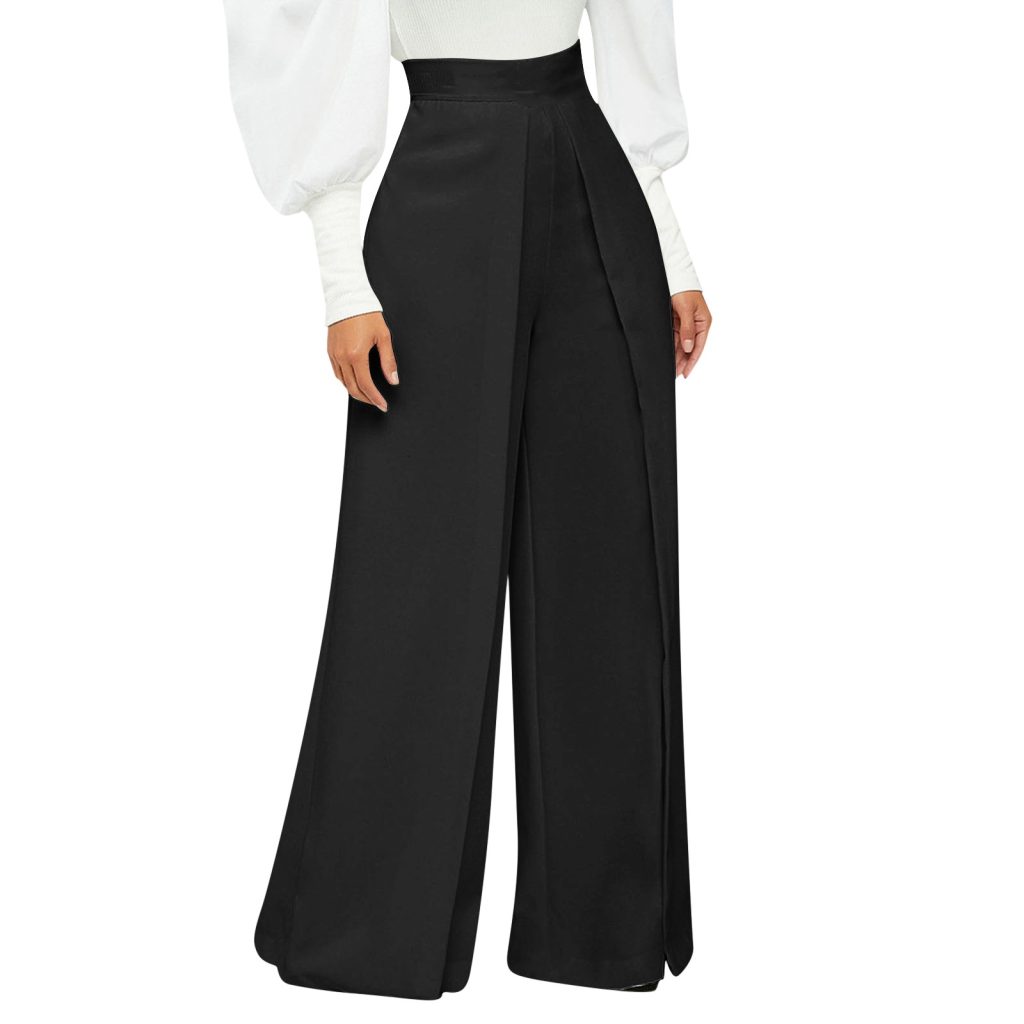
Accessories to Elevate Your Look
- Shoes: The choice of footwear greatly impacts the overall style. Classic options like Oxford or Derby shoes exude formality, while loafers or clean sneakers can lean towards a more casual vibe.
- Belt: A well-chosen belt not only holds up your cargo pants but also adds a touch of finesse. Match the belt color to your shoes for a cohesive finish.
- Watch & Jewelry: A classic watch or subtle jewelry pieces can add a touch of sophistication to your outfit. Keep it minimal to maintain a refined appearance.
- Watch & Jewelry: A classic watch or subtle jewelry pieces can add a touch of sophistication to your outfit. Keep it minimal to maintain a refined appearance.
Color Coordination
Understanding color theory can enhance your outfit combinations. Complementary colors (opposites on the color wheel) create a striking contrast, while analogous colors (next to each other on the wheel) provide a harmonious blend. Neutral pants allow for more adventurous top choices, while bold pants call for more subdued accompaniments.
Styling dress pants is an art form that evolves with personal taste and occasion demands. Whether dressing for the boardroom or a casual weekend brunch, the key lies in balancing formality, comfort, and personal flair.
Conclusion
Mastering the art of ironing dress pants not only ensures that you look your best but also extends the life of your clothing by treating them with care. With practice, you’ll develop a technique that efficiently removes wrinkles while preserving the integrity of the fabric. Remember, investing time in proper preparation and following the guidelines tailored to your pants’ specific fabric will result in a flawless, professional appearance every time. So, the next time you reach for your dress pants, take a few extra minutes to iron them – the confidence boost from looking sharp and put-together is well worth the effort.
